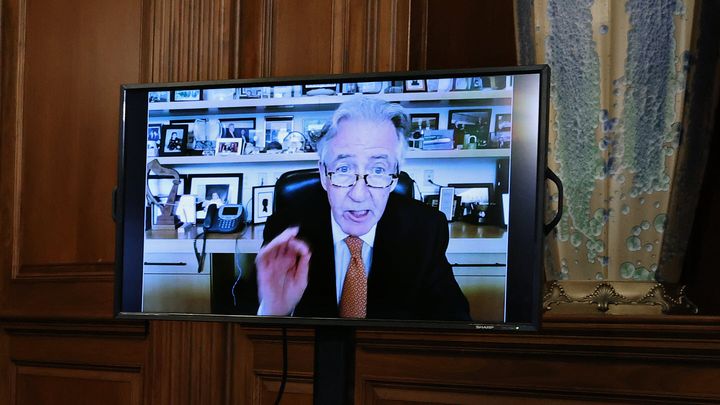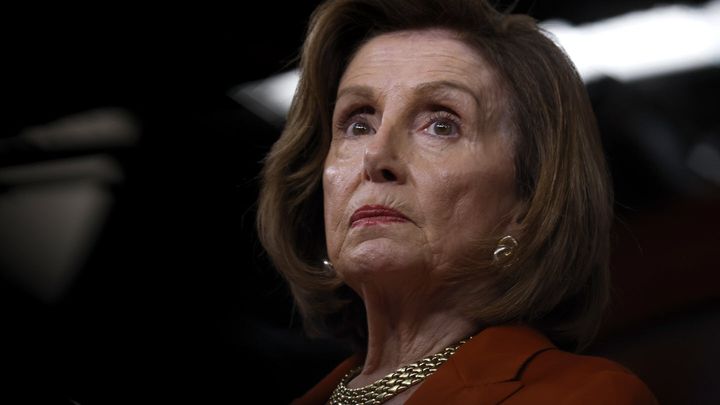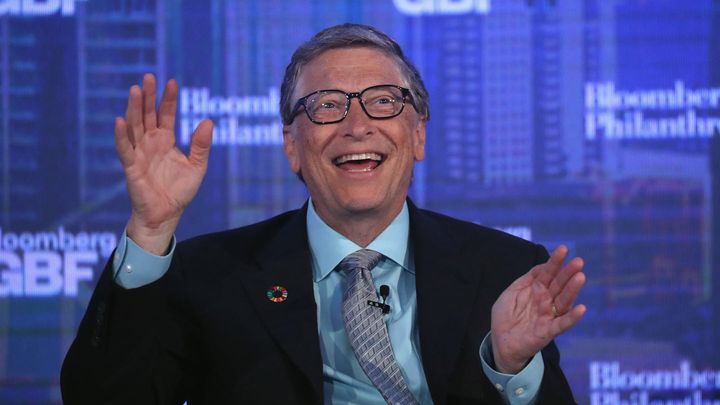The American Prospect is a nonprofit, independent magazine covering public policy and politics. Sludge is re-publishing this article.
On August 19, Rep. Richard Neal’s powerful D.C. lawyer Brian Svoboda sent a cease and desist letter to local news station WWLP-22, in Massachusetts’s First Congressional District. An outside ad had been hammering the incumbent over his record of taking more money from corporations than any other member of Congress. Writing on behalf of Neal, Svoboda claimed that the ad, from Justice Democrats, conflates taking “money from corporations”—a felony under federal law—with taking money from corporate PACs. The legal counsel for Justice Democrats described the letter as “not valid from a legal perspective.”
The letter comes as Neal, in his 16th term, finds himself in a single-digit race against progressive Holyoke mayor Alex Morse, according to two recent polls. The primary is on Tuesday.
Semantics aside—and he is in fact the single largest recipient of corporate (PAC) dollars in all of Congress—Neal has used his powerful position as chair of the Ways and Means Committee to grease a revolving door that shepherds friends, family, and staffers between his office and the lobbyist firms that advocate on behalf of his biggest donors. Before threatening a local news provider with legal action, Neal made no small effort to conceal his fealty to the powerful special interest groups funding his campaign, corporate interests that have a dramatic impact on the lives of his constituents.
For example, Neal’s former legislative director Melissa Mueller has taken to lobbying for organizations that have donated considerable sums to the Neal campaign this year. At Capitol Tax Partners, Mueller took in $460,000 from Verizon, insurance companies like Northwestern Mutual Life, and big energy firms like NextEra and Terra-Gen Power. In 2020 alone, corporations compensating Mueller for her lobbying efforts donated over $290,000 to Neal’s campaign.
After twenty years in Rep. Neal’s office, former chief of staff Ann Jablon also began working as a lobbyist at Capital Counsel, a bipartisan D.C. lobbying firm, in 2016. Public lobbying disclosures show that in 2020, Jablon’s firm received over one million dollars in income from the same hospital, pharmaceutical, and doctors’ associations that have donated hundreds of thousands of dollars to Neal’s campaign this cycle. Notable among them is the American Medical Group Association, which opposed legislation that would have curbed surprise billing that Neal ultimately killed and Jablon lobbied against.
The surprise-billing fiasco has damaged lives across the country, including those in Massachusetts. A review of over 330 pages of complaints to the Massachusetts Attorney General’s office, obtained by the group Fight Corporate Monopolies, reveals the way numerous patients have been victimized by unexpected medical bills in the state. Time and again, Massachusetts patients check and double-check that they would not be hit with an out-of-network change for anesthesiologists, radiologists, or emergency room doctors, are told everything will be fine, and still end up owing thousands of dollars.
One patient treated at Sturdy Memorial Hospital in Attleboro, Massachusetts, got a bill from “Rhode Island Imaging,” for having their radiologist read X-rays. When the patient questioned “why someone at Sturdy would be billing separately by a Rhode Island company, I was told ‘That’s just the way it is.’” Another patient went for a colonoscopy at Cooley Dickinson Hospital in Northampton because that was listed “in network” on her insurance company Cigna’s app. The bill from Cigna then stated “that Cooley Dickinson was out of network … I owed $1,730.06.” The same thing happened to a patient in Salem, who was assured before getting a mammogram that the services would be in network, but found out later that the radiologist was not.
A fourth patient from Waltham received a $4,321 bill for an out-of-network anesthesiologist. A fifth from Somerville had to pay $5,557.78 for an out-of-network doctor. A sixth from Newton racked up over $10,000 in charges from out-of-network healthcare providers, after confirming that the doctor was in-network.
Trade groups representing hospitals, radiologists, and anesthesiologists have devoted over $600,000 to Neal’s effort, both through direct funding to the Neal campaign and third-party spending.
WHILE NEAL’S FORMER EMPLOYEES have turned to lobbying, former lobbyists have in turn joined Neal’s staff. Picking up where Mueller left off, Neal’s deputy chief of staff on the House Ways and Means Committee, Elizabeth O’Hara, previously spent six years lobbying for O’Hara Federal Strategies, where her father now serves as principal. One of O’Hara Federal Strategies’ chief clients is Norfolk Southern, which has donated more than $25,000 to Neal over the last four election cycles.
In between her former role as Neal’s legislative director and her current role as Senior Counsel to the Ways and Means Committee, Peg McGlinch lobbied on behalf of Deloitte, Baxter Healthcare, PhRMA, Baxalta, and AmerisourceBergen. Combined, these companies have donated some $52,000 to Neal since 2014.
Neal has also supported the endeavors of friends in addition to congressional staff. Melinda Phelps, head of the government strategies group at the powerful Springfield law firm Bulkley Richardson, is also a former member of Neal’s mayoral campaign and a close friend of Neal’s. Phelps sits on multiple boards that have received donations from Neal. Data compiled by the Center For Responsive Politics for the Prospect shows that one of the boards that Phelps sits on, The Spirit of Springfield, has received $15,355 from Neal’s Congressional committee.
While Spirit of Springfield is a civic pride organization, Develop Springfield, a privately funded development non-profit where Phelps serves as vice chair, has also received help from Neal. The congressman has written multiple times to the Springfield Community Preservation Committee advocating for public subsidies for private developments supported by the group. Neal has appeared at Develop Springfield events, and touts his record securing federal matching for their projects.
None of the projects listed on Develop Springfield’s website mention low-income housing or community-based development, despite their requests for taxpayer dollars intended for projects that “preserve the character of the community.” This falls in line with Phelps’ statements describing community development projects as “encroachments” on middle-class neighborhoods.
Phelps’s law firm Bulkley Richardson has received $1,800 for “fundraising,” per Center For Responsive Politics records, and hosted a pre-gala VIP reception with Neal last year. Phelps also attended a Spirit of Springfield fundraiser co-chaired by Neal and MassMutual CEO Roger Crandall, although photo galleries on Masslive covering both events disappeared from their site, displaying an “internal server error” message, after the Prospect began contacting sources as part of its investigation into Phelps last week. The removal of the photos comes on the heels of The Intercept’s reporting on the tilted local media coverage of the MA-01 race. As of Sunday, the galleries seem to have been restored.
Beyond friends and staffers, a member of Neal’s nuclear family has also come to benefit from the tremendous power that flows from the gavel of the Ways and Means Committee. As The Intercept reported earlier this month, Neal’s son Brendan was able to secure a lucrative lobbying job with Trestle Energy, a California-based biofuel company, after Neal helped the biofuel industry win a $3 billion dollar tax credit. As Lee Fang wrote, “The legislative gift followed a series of PAC donations from the largest ethanol and biofuel companies in America to Neal’s campaign, a tradition that enriches the campaign war chests of most legislators on the tax-writing committee.” Total biofuel industry donations to Neal this cycle are over $20,000.
In addition to taking biofuel money, Neal has also advanced legislation that would give massive tax incentives to biomass energy providers like the embattled Palmer Renewable Energy, which has fought a prolonged battle with activist groups and city councilors to build a wood-burning biomass plant in East Springfield. Already suffering from the highest rates of asthma in the country, Springfield residents have raised the alarm over the plant’s potential to worsen public health, a sentiment that activists and local politicians have echoed. In 2010 Palmer Paving, whose owners the Callahans are also investors in the east Springfield plant, donated $5,500 to Neal. Between 2012 and 2020 members of the Callahan family donated an additional $2,500.
Read more:
Neal’s CARES Act Bailed Out Hospitals But Not Hospital Workers



